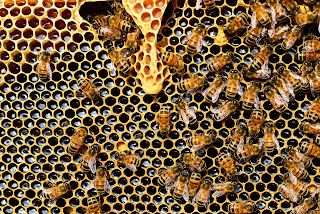Is Honey Good For You? The Truth About The Health Benefits Of Natural Honey
Honey has been used for centuries as a sweetener and as a natural remedy for a variety of ailments. But what is honey, really? Is it good for you? Let’s take a closer look at the health benefits of natural honey and find out if this popular food lives up to the hype.
What is honey?
Honey has been used as a medicinal remedy for centuries and is thought to have many health benefits. It is a natural sweetener that is made by bees from the nectar of flowers. Honey is rich in antioxidants and has anti-inflammatory and antibacterial properties.
Some research has shown that honey can help to boost the immune system, relieve allergies, improve digestive health, and promote wound healing. Honey is also said to be a good cough suppressant and can help to soothe a sore throat.
While honey does have some health benefits, it is important to remember that it is still a sugar. Therefore, it should be consumed in moderation as part of a healthy diet.
The benefits of honey
Honey has a long history of being used as a natural remedy for a variety of ailments. The health benefits of honey have been well-documented over the years. Here are some of the most noteworthy benefits of honey:
1. Honey is an excellent cough suppressant.
2. Honey can help to soothe a sore throat.
3. Honey can help to ease digestive issues such as diarrhea and nausea.
4. Honey has antioxidant and anti-inflammatory properties that can help to boost the immune system.
5. Honey can help to improve circulation and reduce inflammation.
6. Honey can aid in weight loss by increasing metabolism and suppressing appetite.
7. Honey has antibacterial and antifungal properties that make it great for wound healing.
How to choose quality honey
When you're looking for quality honey, there are a few things you'll want to keep in mind. First, look for honey that has been collected from hives that are free of pesticides and other chemicals. Second, look for honey that has been collected from areas where the bees have access to a variety of flowers. This will ensure that the honey is rich in pollen and other nutrients. Finally, look for raw honey that has not been processed or heated, as this can destroy some of the beneficial enzymes in the honey.
The best ways to use honey
Honey has been used for centuries as a natural sweetener and as a remedy for a variety of ailments. But is honey good for you?
The answer is yes! Honey is a nutritious food that offers many health benefits. Here are some of the best ways to use honey:
1. Add honey to your diet in place of sugar.
Honey is a healthy alternative to refined sugar. It's lower on the glycemic index, so it doesn't cause spikes in blood sugar levels. Honey also contains vitamins, minerals, and antioxidants that refined sugar does not have.
2. Use honey to soothe a cough or sore throat.
Honey has long been used as a home remedy for coughs and sore throats. It can help to suppress coughing and loosen mucus. Honey also has antibacterial properties that can help to fight infection.
3. Apply honey to wounds or burns to speed healing.
because of its anti-inflammatory and antimicrobial properties, honey can help to speed the healing process of wounds and burns while preventing infection
Honey recipes
Honey has been used as a natural sweetener for centuries and is beloved by many for its unique flavor. But is honey good for you? The answer may surprise you!
While honey does contain some sugar, it also contains vitamins, minerals, and antioxidants that can be beneficial to your health. For example, honey has been shown to help improve cholesterol levels and blood pressure, boost energy levels, and promote gut health. Additionally, honey has antimicrobial and anti-inflammatory properties that can help fight infections and soothe sore throats.
So, what are some ways you can incorporate honey into your diet? Here are a few ideas:
-Add a dollop of honey to your morning oatmeal or yogurt.
-Spread honey on whole grain toast or crackers with peanut butter or cheese.
-Stir honey into tea or coffee for a delicious treat.
-Make a simple fruit salad with diced fresh fruit and a drizzle of honey.
Are there any risks associated with consuming honey?
Yes, there are risks associated with consuming honey. Raw honey can contain harmful bacteria that can cause food poisoning. If you have a weakened immune system, you should avoid consuming raw honey. You should also be careful about purchasing raw honey from unknown or untrustworthy sources.
Conclusion
Whether you're looking for a natural sweetener for your morning cup of tea or you're interested in the health benefits of honey, it's worth considering adding honey to your diet. While there is some debate about whether honey is truly good for you, the consensus seems to be that natural honey does offer some health benefits. So go ahead and enjoy a spoonful of honey — your body will thank you for it.



No comments: